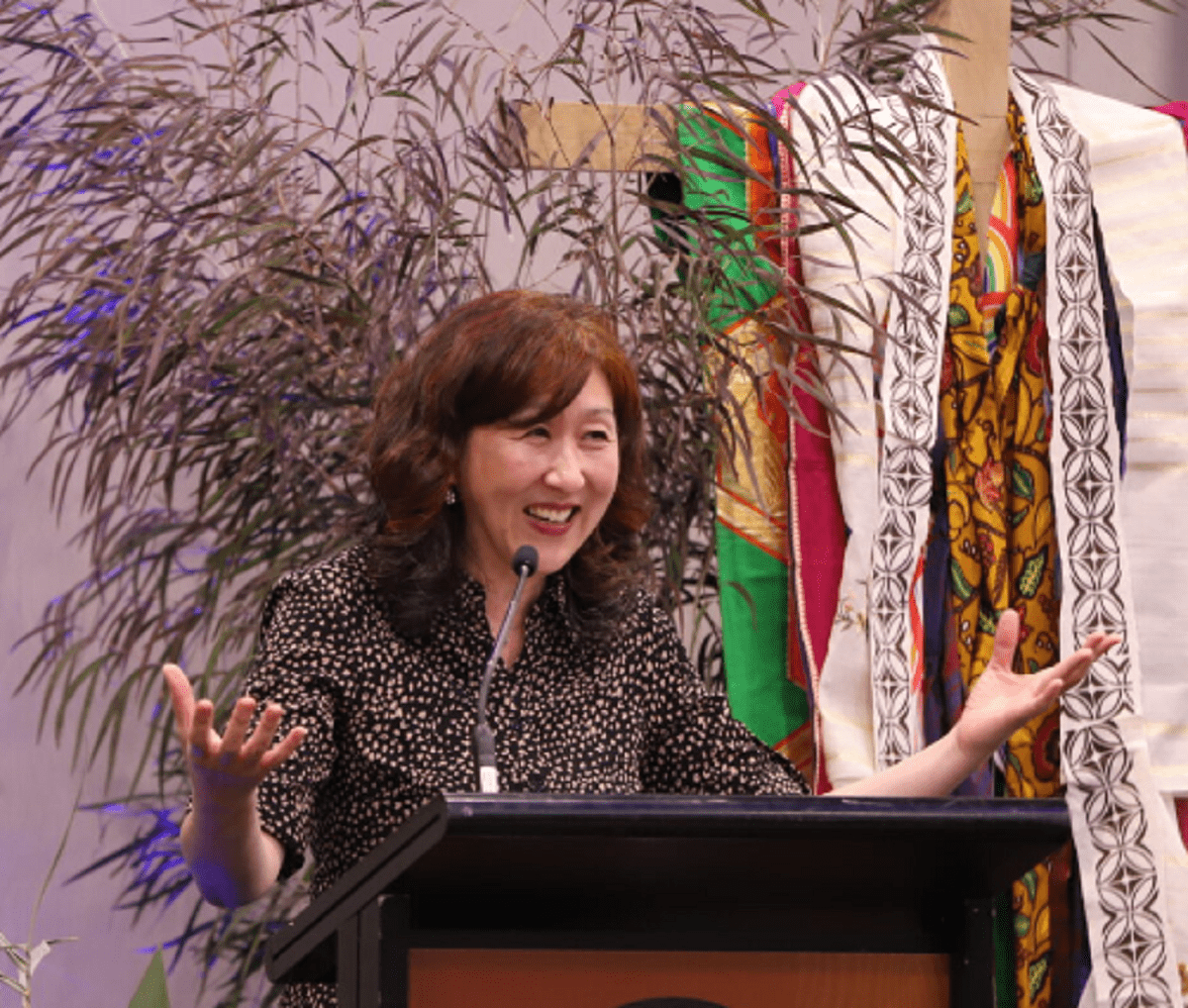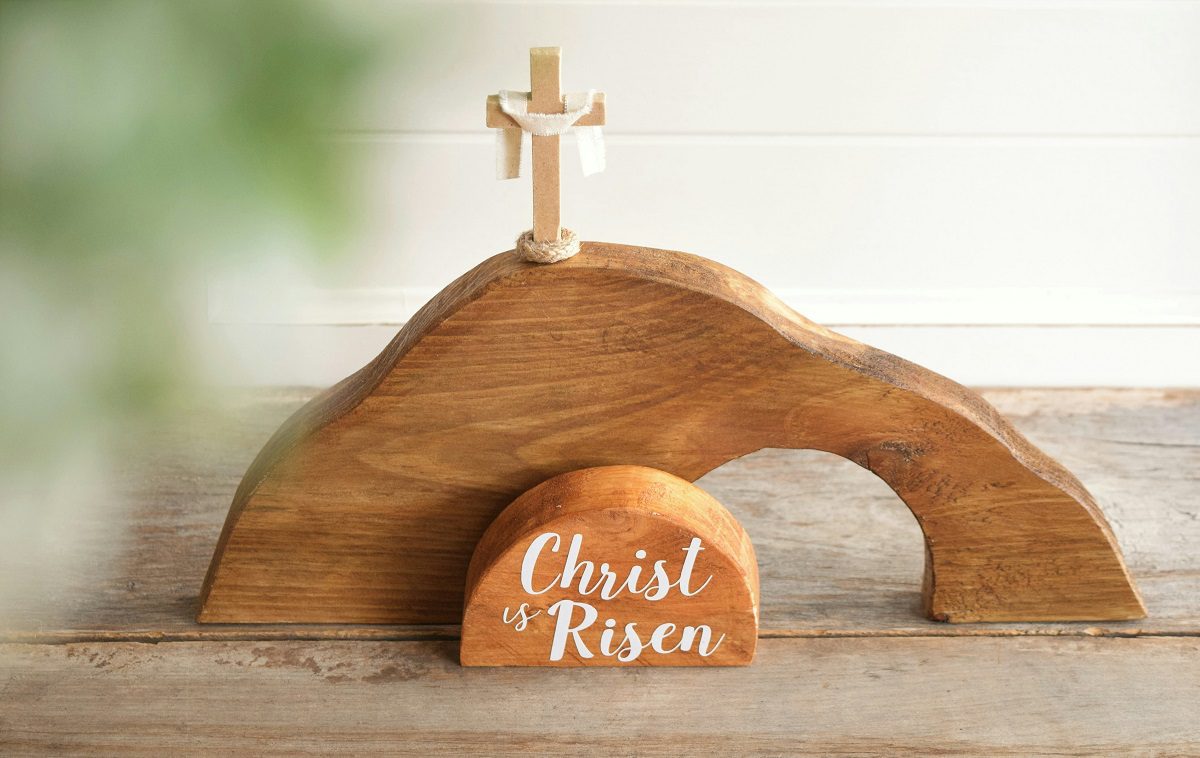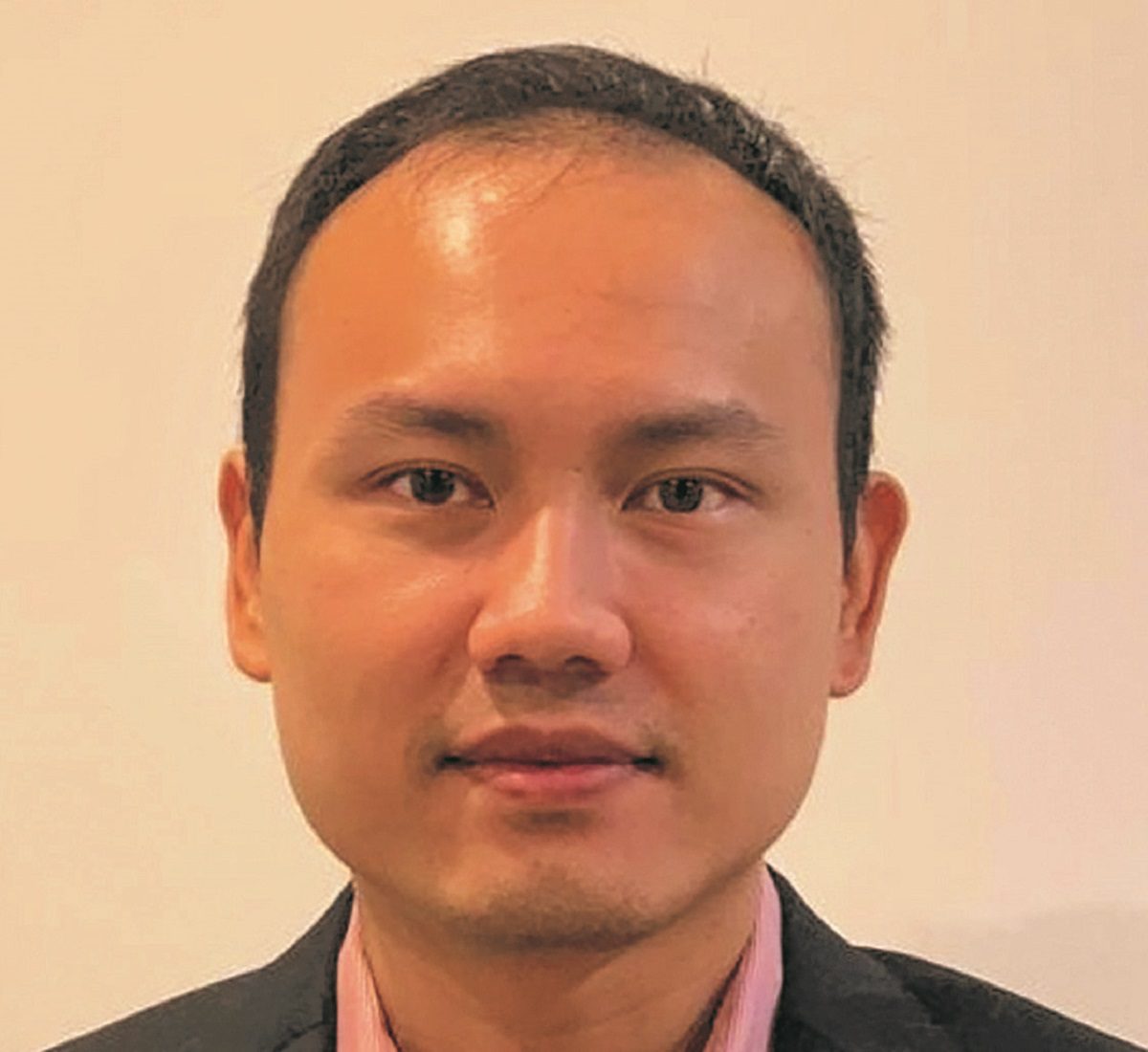By Andrew Humphries
As a respected theologian, author, and in-demand public speaker, Rev Dr Grace Ji-Sun Kim has uttered thousands of words to audiences around the world.
Yet it’s just 19 words that encapsulate so much of what she stands for, and what drives her work.
“No person of any race or ethnicity has a biological or spiritual claim to being better than anyone else,” is the mantra that inspires Grace, and one she had an opportunity to expand on during a visit to Australia in late July.
During her time here, she delivered the Cato Lecture at the 17th National Assembly in Sydney, and then travelled to Melbourne where she spoke at The Wesley Centre for Theology, Ethics, and Public Policy, Manningham Uniting Church, and as part of a Synod intercultural forum at St George’s Uniting Church in Richmond.
Delivering the Cato Lecture on the theme of intersectionality and love, Grace reflected on the fact that the Uniting Church was installing the first woman of colour, Rev Charissa Suli, as our President.
It was, she said, something worth celebrating in a world in which racial injustice continues to damage lives.
Racial injustice, and the damage it causes, is a theme in her recent book, ‘How God became white: Dismantling Whiteness for a More Just Christianity’, and Grace challenged Uniting Church members to reflect on how racism and ‘whiteness’ have shaped images of God for centuries.
“I grew up believing in a white male God,” she says.
“Nobody challenged it and I never challenged it.
“Nobody has ever seen God but for some reason (in every) painting and representation we continue to talk about a white male God.”
Grace says this myth of a “white male God” has had a devastating impact around the world.
“We have to move away from this (because it) became the architecture of white supremacy,” she says.
“(It is a myth that has been) used to colonise countries around the world, engage in holy wars, and enforce enslavement and genocide.”
Grace says the “white male God” myth has enabled racism to flourish throughout the world, including in religion.
“If we continue to uphold this image of a white male God, we will continue to perpetuate this racism that we experience in the church,” she says.
“I know the Uniting Church is struggling with this, and with racism and intercultural ministry, and it’s a real challenge.
“The image of God needs to be recognised in a non-gendered and non-racialised way, but unfortunately many people still want to hold up this image of the white male God.
“The narrative of God being white has been the narrative for the past 2000 years, and that really reinforces this concept of white privilege and white supremacy.
“It’s something we need to fight and dismantle.”

Grace Ji-Sun Kim delivers the Cato Lecture at the National Assembly.
During her Cato Lecture, Grace also touched on the theme of intersectionality, and how different injustices intersect to create ongoing oppression for so many people.
“Intersectionality is so important for us because what it’s trying to say is that when there are all these different injustices in our society today, like gender injustice, racial injustice, climate injustice and economic injustice, these are not separate little silos, these are all intersecting forms of injustices,” Grace said.
“Many people feel that they are these separate things that do not collide or intersect with each other, but if you study them closely you will know that there are intersecting realities.”
Grace refers to the work of Kimberlé Crenshaw, a scholar of critical race theory who coined the term and the concept of “the idea that multiple oppressions reinforce each other to create new categories of suffering”.
“So, it’s not just one issue around injustice we are dealing with, and it’s not just in society, it’s also in our churches,” Grace said.
“It’s already here and it’s present so, as the Uniting Church, how are we going to deal with these forms of injustice?
“In 2024 how are we going to deal with these forms of oppression which will continue to exist if we do nothing about them?
“So whatever form of ministry you are engaged in, my hope is that intersectionality will become a tool for you in fighting these different forms of oppression.”
The dismantling of racism, and other injustices, will only come through education, says Grace and, as the author of over 20 books, she hopes she is able to play some part in that.
“You can only write if you have a deep desire to convey information which helps society and the church,” she says.
“So, when I keep seeing racism and sexism I will keep writing about it, and it gives me joy that I can have an impact in the classroom and around the world.
“I want to make an impact on society.
“There is a faith that God requires of us, but also one of action and, if that action is racist or sexist then we have a big problem.
“Faith is a journey and it requires us to continue to live it out faithfully so that we can love all people, not just those who look like us and resemble us.”

Faith calls us to love all people, regardless of our differences, says Grace Ji-Sun Kim.
Grace’s own faith journey began as a young girl, far from her country of birth, but it wasn’t the Bible and Jesus Christ that initially attracted her and her family.
Instead it was the sense of community that their local church in Canada offered to the newly arrived migrants from Korea.
For Grace, who was just five when her family made the move to London, Ontario, the opportunity to mix with fellow Koreans was what she needed to navigate a strange new country.
“When we first moved to Canada, our family wasn’t a Christian one,” Grace recalls.
“However, when I was about seven, a woman who lived in our building suggested we should go to the First Presbyterian Korean Church in London.
“At first it was just my sister and I who went and then, about a year later, my parents started attending and then we were all baptised and were attending regularly.”
For Grace and her family, the church had become a place of wonderful connection and fellowship.
“For many immigrant families these churches are more than just a place of worship,” she says.
“Some people will come to a country where they have extended families, but we certainly didn’t, so the church became that extended family for us.
“So, if there was a wedding, for example, everyone was invited, or there were birthday parties everyone attended.
“The church, at that time, drew me in because it was where I could make friends.”
While services at her church were held on Sunday afternoons, Grace’s interest blossomed and Sunday mornings were taken up with Sunday school classes at a local Baptist church, before Sunday night worship took place at a different Baptist church.
Throw in Friday nights at another church “for fun” and a strong sense of faith was developing for Grace.
“With all of this came a yearning to learn more about the Bible and God,” she says.
The rest, as they say, is history and nearly 50 years later Grace is Professor of Theology at Earlham School of Religion in Richmond, Indiana, an acclaimed author, and a public speaker who is widely sought throughout the world.
“Part of me finds it all quite unbelievable because as a young girl I had no real idea what I wanted to do,” she says.
“In my teenage years, though, I began to feel this calling to serve God either in the church or through teaching.
“It is remarkable when I look back on it all.”

“Grace Ji-Sun Kim’s ‘When God Became White’ serves as a reminder for the church that unspoken assumptions about race can lead us away from the Gospel,” says Daniel Sihombing.
Book opens chapter on important discussion
By Daniel Sihombing
On July 28, The Wesley Centre for Theology, Ethics, and Public Policy hosted a book discussion with Grace Ji-Sun Kim, author of ‘When God Became White: Dismantling Whiteness for a More Just Christianity’.
I was privileged to respond to her talk and I began by thanking her for opening up and sharing her painful experiences of racism, for being brave in confronting it, and for inviting us to reflect theologically on this problem as Christians.
As I read the book, I found many stories that were moving and relatable to my own experience: being a target of ridicule to other kids because of a different physical appearance; the feeling of being a “perpetual foreigner”, no matter how long we’ve stayed in a country; being scapegoated, laughed at for our accent, and all sorts of microaggressions.
Then in the church we find that we need to conform with and look up to the white people.
I grew up in Indonesia, a country that was colonised by the Dutch for at least one and a half centuries.
The history of Dutch colonialism was at least as brutal as the British one and yet, from what I experienced, Indonesians often have a very positive image about the Dutch, especially within church circles.
Often there is an assumption that they are superior to us in many ways.
Grace spoke of a particular image of Jesus as a white man which hung in the home of her Korean family, and which she found in other places, such as India, which are not predominately white.
In Indonesia, we have the white Jesus image as well.
I welcome Grace’s call to dismantle this ideology and to liberate Christianity from its captivity to white supremacy.
Some questions came to my mind as I read her book, which I was able to put to her at the event.
For example, she writes that “It is strange that throughout church history, strong patriarchal words such as King, Master, Lord, Sovereign, and Almighty are used to talk about a loving and graceful God”.
Indeed, these words are problematic and perhaps have been used to reinforce bad practices in the life of the church.
But some of them also seem to be central to our faith tradition.
Confessing that Jesus is Lord is one example.
The Apostles’ Creed begins with, “I believe in God, the Father almighty”, and we often end the Lord’s Prayer with, “For the kingdom, the power, and the glory are yours, now and forever”.
I know there are congregations which do not recite the Apostle’s Creed or the Lord’s Prayer for this very reason.
But on the other hand, these also function as something that binds us with the universal church.
In response, Grace reminded us that language does change over the years.
Many now object, she said, to the word ‘kingdom’, which is so prevalent throughout the Bible, and some now replace this with ‘kin-dom’ as an alternative.
As Grace is working in America, I was curious to hear her opinions about the polarisation of the so-called ‘woke left’ and ‘far right’.
I mentioned the claim that despite being on opposite sides, one thing that the woke left and far right are doing in unison is suppressing the emancipatory strand that exists within the Western tradition, which was largely constructed by white, male figures.
Is the white-Western(-male) tradition completely hopeless, or is there something to salvage from it?
Grace emphasised that opposing whiteness is not about opposing particular figures, but rather about opposing the structures that perpetuate racism.
Grace’s ‘When God Became White’ serves as a reminder for the church that unspoken assumptions about race can lead us away from the Gospel.
Daniel Sihombing is an exit candidate for Ministry of the Word in the Uniting Church in Australia, a Fellow at The Wesley Centre for Theology, Ethics, and Public Policy, and the recently appointed Lecturer in Systematic Theology at Pilgrim Theological College. He holds a PhD in theology and is interested in questions around the intersections of Christian beliefs and politics.

